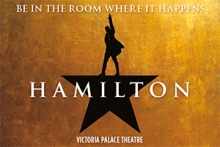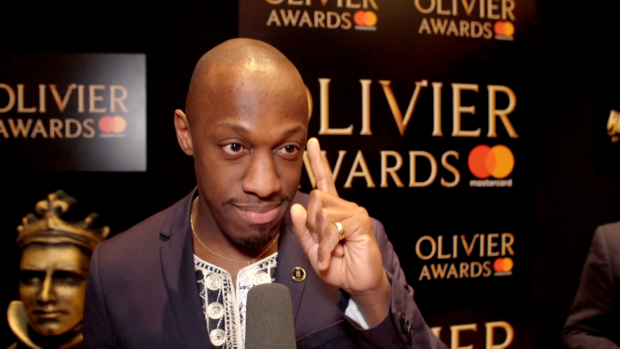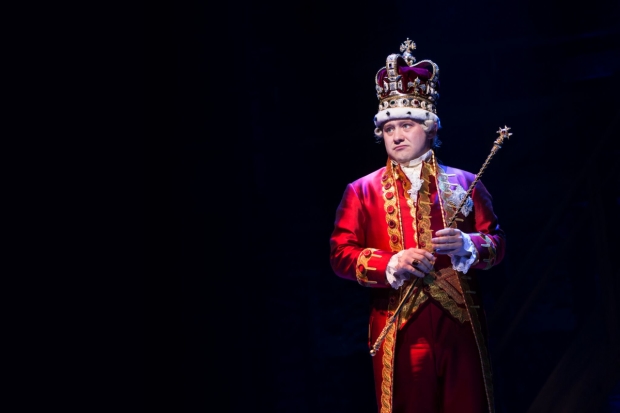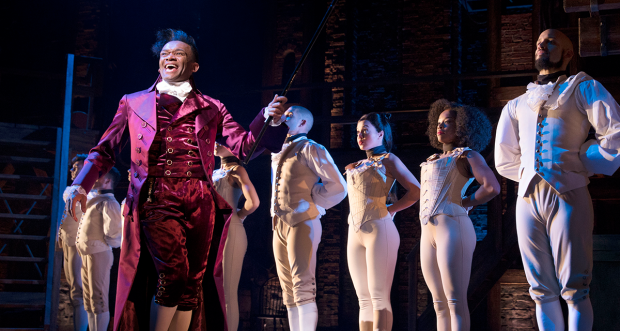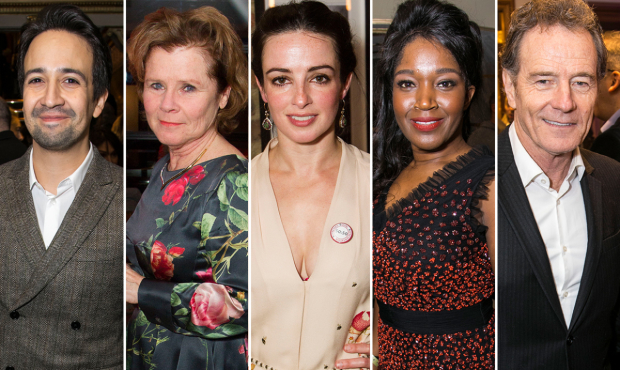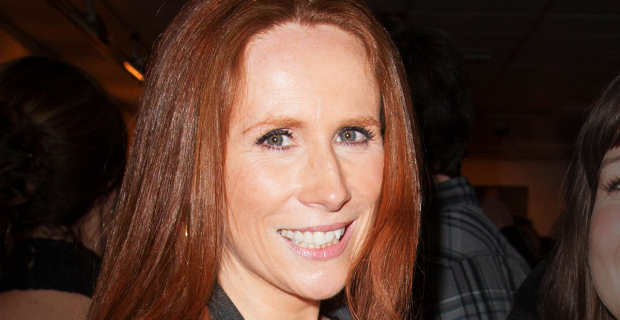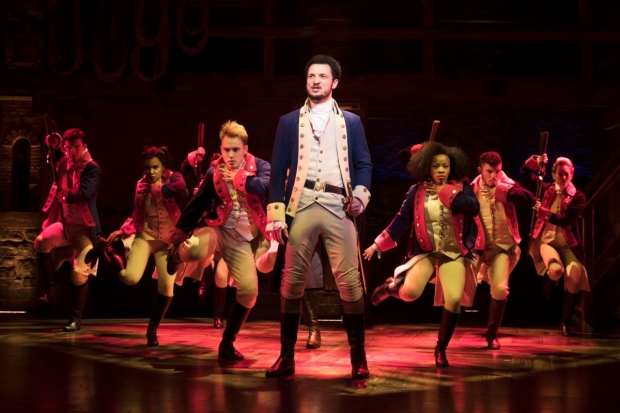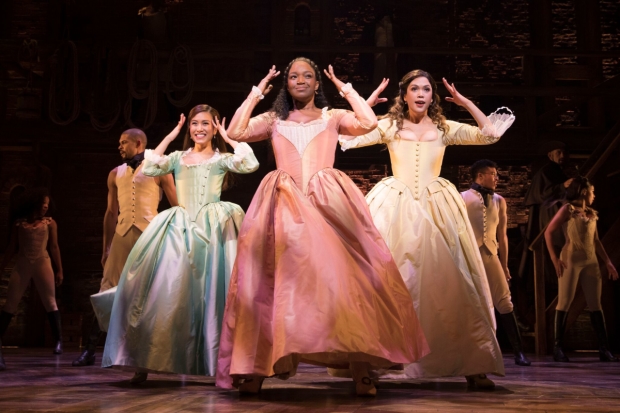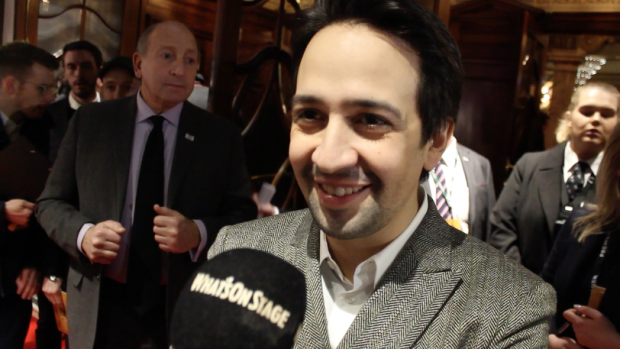New American musicals struggle at the Olivier Awards, will Hamilton buck the trend?
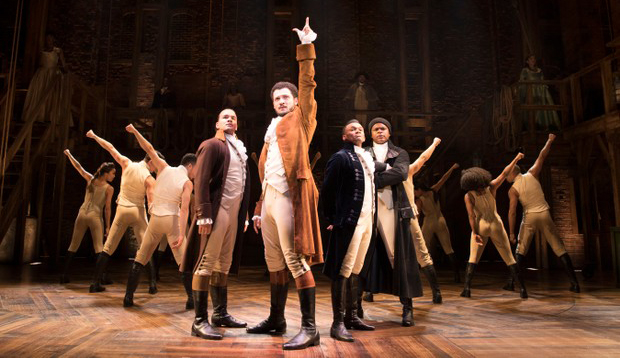
© Matthew Murphy
Hamilton‘s not going to make history at the Olivier Awards on Sunday night. I’ve already laid out my hunch that, despite its record-breaking number of nominations, it won’t top Harry Potter‘s nine. Doing so would mean winning in every one of the 10 categories its got a contender in. To surpass Matilda as the most recognised musical, it needs to take home eight. New voting rules make things a shade unpredictable, though. It may yet sweep the board just by being the most seen.
It’s perfectly conceivable that Follies gets six, Hamilton five
In private, I’ve gone further still. I’ve got a friendly bet – not for cash, I’m a critic, not Cameron Mackintosh – that Hamilton won’t even be the biggest winner on the night itself, let alone of all-time. Follies has every chance of pipping it at the post: strong in categories where Hamilton‘s weakest. Its designers – Vicki Mortimer’s set and spangled costumes, Paule Constable‘s lighting – could and should hoover up the production prizes. Hamilton, meanwhile, has its fair share of trip hazards: up against dance musicals 42nd Street and An American in Paris in the choreography stakes, while its women must contend with the Follies themselves, as well as those brilliant girls from the North Country. It’s perfectly conceivable that Follies gets six, Hamilton five.
However, the stiff competition of a strong year isn’t the main thing holding Hamilton back. History is, ironically enough. The fact is that heavyweight American musicals, laden with Tonys, almost never measure up at the Oliviers.
Surprising, but true – and the list is long. The Book of Mormon arrived with nine Tonys in tow, but came away from the Oliviers with just four statuettes. Kinky Boots won six on its home turf, but half that over here – retribution, perhaps, for squeezing Matilda out of Broadway glory. The Producers plummeted from 12 to three; Once‘s eight translated to just two, Hairspray dropped from seven to four. Plenty of others have shared the same fate on a smaller scale: Spring Awakening (eight Tonys, four Oliviers), In The Heights (four to three), Memphis (four to two) and Jersey Boys went from four to one, while three-Tony shows Fela, Spamalot and Avenue Q all left empty-handed.
Broadway lives and dies by its tuners, so it tends to ensure that they’re recognised
It’s enough of a trend to think something’s up. Mostly, it’s a matter of categorization. Broadway lives and dies by its tuners, so it tends to ensure that they’re recognised. Musicals have their own design and direction prizes, where here they’re lumped in with straight plays, while there are specialist Tonys for book, score and orchestration – all unrewarded over here. The upshot is that musicals are better placed at the Tonys than they are at the Oliviers.
Is that all there is? Well, if it was, you’d expect British musicals to fare just as well on Broadway. In fact, transatlantic transfers falter in both directions. Matilda, as I’ve mentioned, dropped from seven to five, while Groundhog Day came away with nothing and neither Sister Act, Mary Poppins nor Mamma Mia! measured up. As it is, this century, only Billy Elliot increased its haul away from home.
All of which gives lie to the idea that awards are in any way an even playing field. There’s a distinct home advantage at play – a fact that might come from anywhere: favour shown to known names, the simple fact of novelty, maybe just the promotional nature of these things. One way or another, it goes to show that awards are, at heart, mere follies – and that may cost Hamilton dear.



